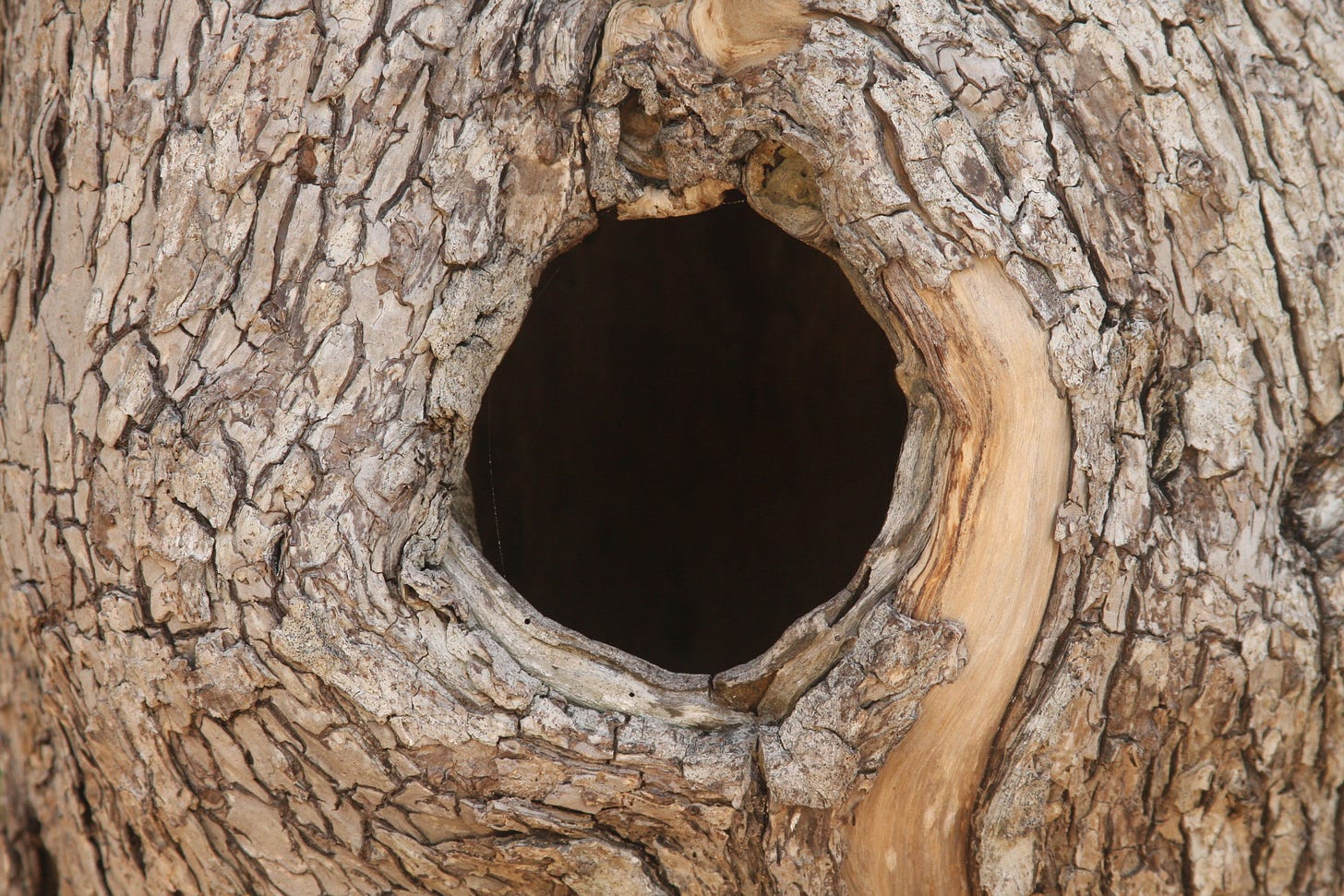Deceitful Heart, Desperately Sick
"The heart is deceitful above all things, and desperately sick; who can understand it?" Jeremiah 17:9 (ESV)
As an elementary student, I rode the bus to school. The trip took about 30 minutes, and since we lived six miles out of town, I was one of the first to be picked up and one of the last to be dropped off.
As early as Kindergarten or 1st grade (I can't remember which, but I remember I was young), I came home with my first "bad" paper. I'm not sure how "bad" a "bad" paper was in Kindergarten or 1st grade, but it seemed bad enough at the time that I didn't want my parents seeing it. I rode the bus home, the whole time trying to figure out what to do with my bad paper. For reasons I still can't articulate, I was ashamed and afraid.
When the bus dropped me off and drove on down the road and over the next hill to Sarah's, I had an idea of how to get rid of my bad paper. In our front yard stood a big tree with a hole about eighteen inches in diameter in the trunk about twelve feet up (though to my Kindergarten/1st grade self, it seemed more like 30-40 feet high). If I wadded my bad paper up, I thought, I could throw away my shame and only the squirrels and I would know.
But I had to do it quickly, as Bill the bus driver would be coming back after dropping Sarah off. Obviously, I couldn't start until the bus made it over the hill, otherwise Bill might see me in his large and powerful rear view mirrors. Instead, I got off the bus, crossed to our front yard, and awkwardly turned around to wave. Then, when I couldn't see yellow anymore, I ran to the tree, scrambled to get my backpack off, found the bad paper, wadded it up, and started throwing.
Either I miscalculated the effects of the wind on a single wad of paper in flight or my aim was just that bad, but I didn't get my bad paper in the hole on the first try. In fact, my plan took several tries and was interrupted by Bill driving the big yellow school bus back over the hill, with me running back to the side of the road, again awkwardly waving. I then walked back to the tree and kept trying to hide my shame.
I did this multiple times, but never got caught. My parents never walked around the house to find me throwing wads of paper into the tree, and if Bill ever did see what I was doing by way of one of his large and powerful rear view mirrors, he never stopped and said anything. The tree became my own personal wastebasket of shame, and while my papers got better (those Kindergarten/1st grade years were brutal), if there ever was a bad one, I always knew exactly what to do with it.
My aim got better as I got older...as did my ability to hide, emotionally and otherwise.
Twelve years ago, my parents had that tree cut down. Though I had lightheartedly confessed my sin to them one Thanksgiving in my mid-twenties, when I heard the news, I immediately felt the same old shame and fear all over again because of all the bad papers I imagined they surely must have found. I couldn't remember how many there were (it had been a long time), but I was sure those papers had somehow unwadded themselves to form a nice, neat stack of humiliation that was at least three feet high.
As it turned out, after 25 years of Illinois rain and snow, heat and humidity, the papers had decomposed; there was no three-foot high stack, nor even any resilient corners of pages with my Kindergarten-scrawled name on it. The evidence of my elementary school failures was gone, but even now I cringe at how deceitful I was in attempting to hide it. Why was it so important to cover up my shortcomings? And how in the world did I learn to do so at such a young age?
While I'm not proud that I lied for so long to my parents, that was only a symptom; the prophet Jeremiah describes my real problem: a deceitful heart, desperately sick. Even now - as a so-called "adult" - I am still that Kindergartener standing in front of that tree with a hole into which I'm tempted to throw my bad papers. While this can feel like solving the problem, it reminds me what my problem really is: my heart needs a Confessor to forgive rather than a tree to conceal.
“I the Lord search the heart and test the mind, to give every man according to his ways, according to the fruit of his deeds...Heal me, O Lord, and I shall be healed; save me, and I shall be saved, for you are my praise." Jeremiah 17:10, 14




